Major Project
Supporting sustainable and healthy food choices for busy working parents [Read more]
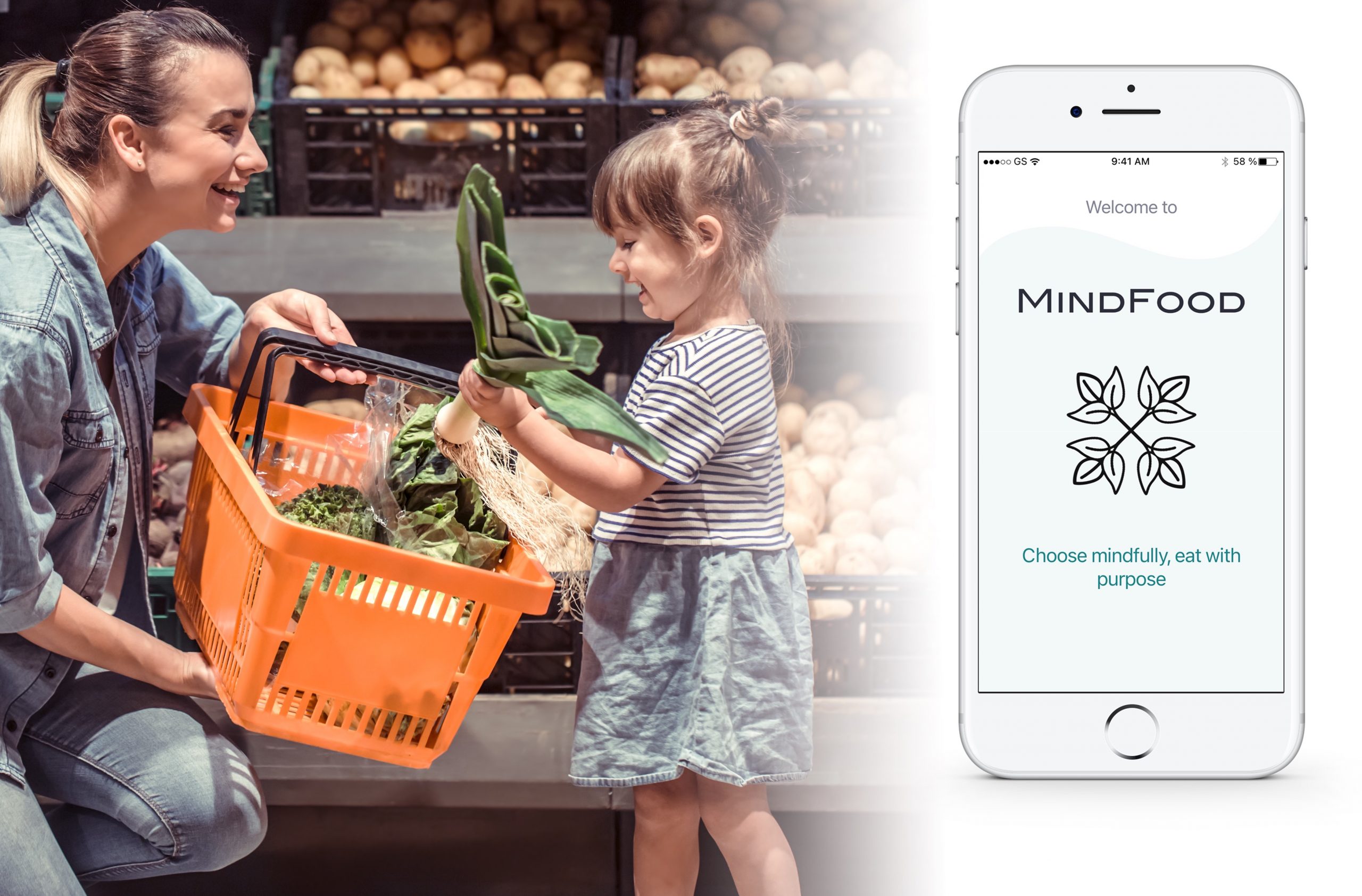
MindFood is a digital assistant that helps users identify the most sustainable food choices.
MindFood is a digital assistant that supports users in making their everyday grocery shop more sustainable. It is aimed for busy working parents who are interested in bringing more sustainable goods into the household efficiently and without deviating from their routines.
The "Receipt Scan" tool uses computer vision to enable users to scan their latest grocery shop receipt and get instant feedback on how sustainable items purchased are.
The unique combination of product life cycle assessment data and AI, allows users to quickly identify scores on product sustainability and provides insights on how scores are generated (i.e.: production emissions, food miles and packaging).
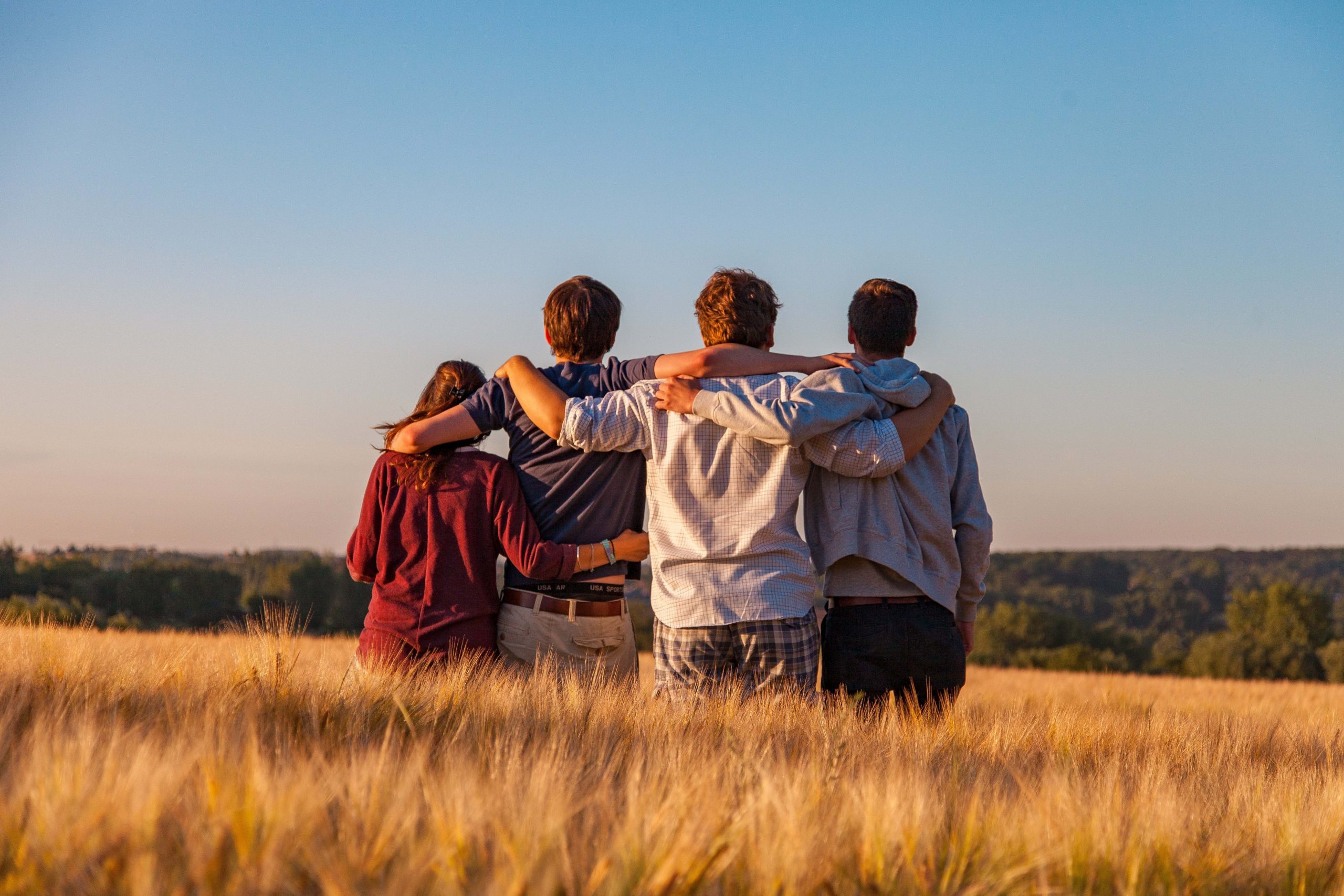
The Challenge
The global population is rapidly increasing and so is the volume of land dedicated to grazing and cultivating crops. The current food systems have proved to be unsustainable with approximately 24% of all global greenhouse emissions linked to agriculture, forestry and other land use. This means that a fourth of the problems linked to global climate change can be attributed back to the daily food choices made by humans.
Since families are recognised as the key to solving several world problems that would otherwise be difficult to attain, the aim of this project was to investigate the food choices, dietary routine and sustainable habits of families with children under 16 in order to find an opportunity to help them explore the benefits of a sustainable and healthy diet.
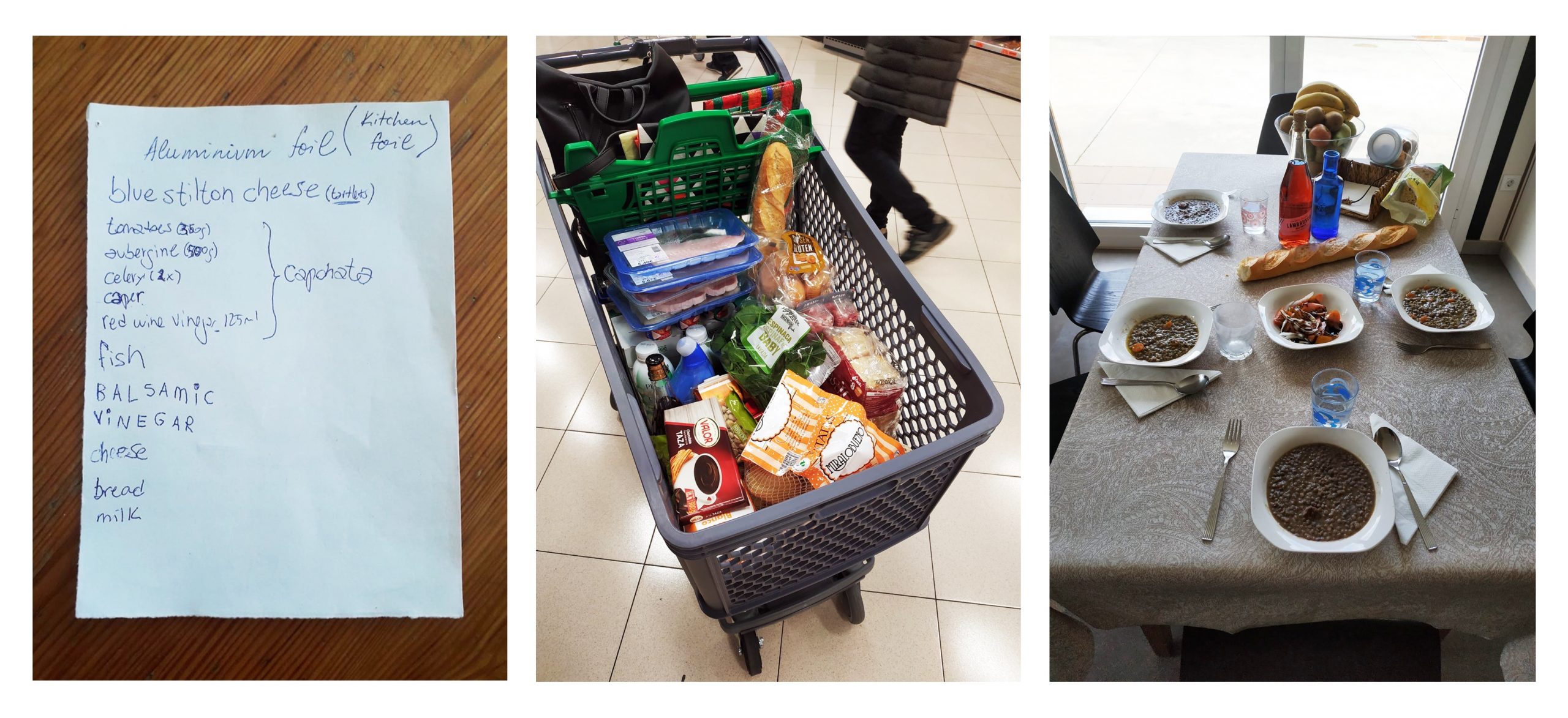
User Research
Due to COVID-19 pandemic outbreak, it was impossible to carry out contextual research. Therefore, the research methodology was adapted in response to the constraints of the pandemic, to gain qualitative insights on parents actions, thoughts and behaviours with respect to grocery shopping, meal preparation and food waste.
Methods included:
- Two expert interviews with nutrition professionals with great sustainability awareness to consolidate some key knowledge in the field from their professional expertise.
- Ten interviews with participants from the target user group to get to know them, their habits and activities surrounding food (and how these had been affected by the pandemic).
- Six diaries studies where participants were asked to report their food-related experiences on a daily basis to bridge the gap between what they ‘said’ and what they actually ‘did’ and ‘felt’.
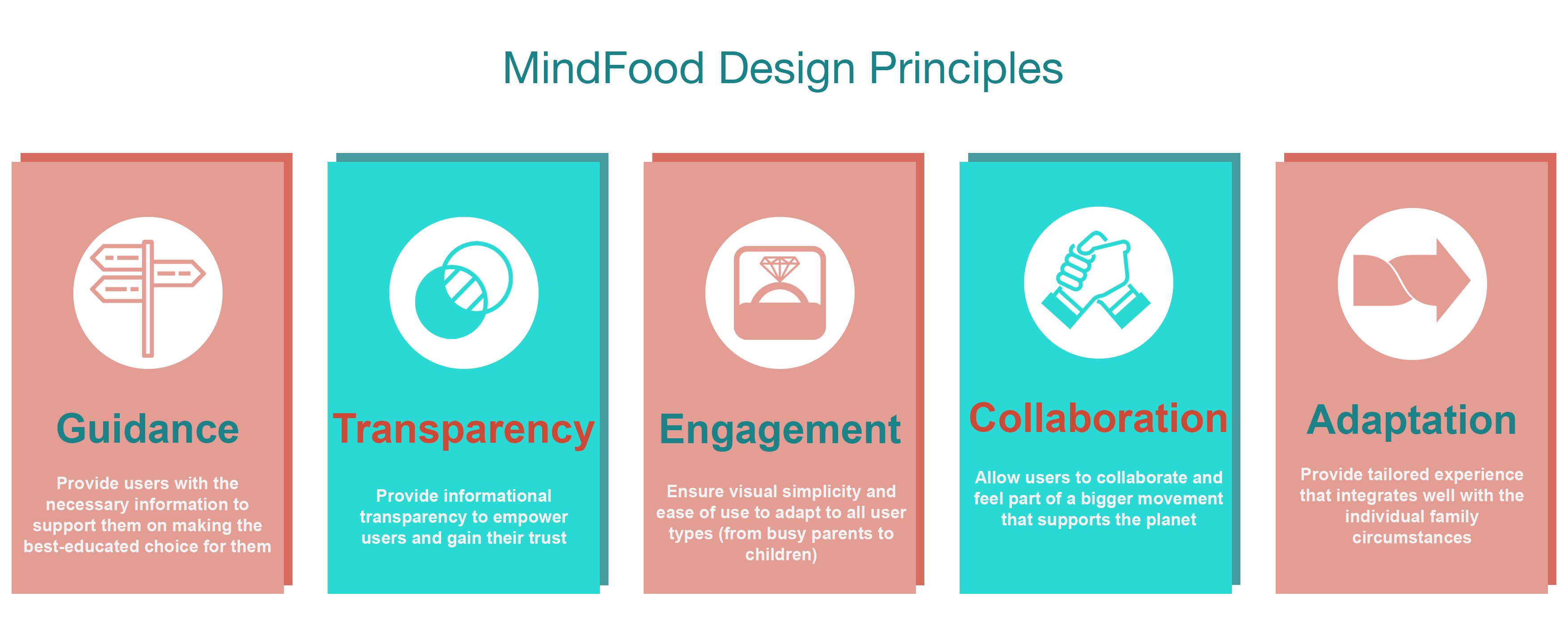
Concept Refinement
To set a clear direction for the project, key insights were unpacked and framed together into a key actionable insight. Moving forward into the development of a solution, opportunity statements and “How Might We?” questions were generated to think of divergent solutions to the issues. To transport the opportunity ideas into concepts a Mini-design Sprint was executed within a remote co-design session with a small group of designers. The different concepts were then evaluated using an evaluation matrix which led to the initial concept and the development of its user requirements through Needs Hierarchy for Design and the key design principles.
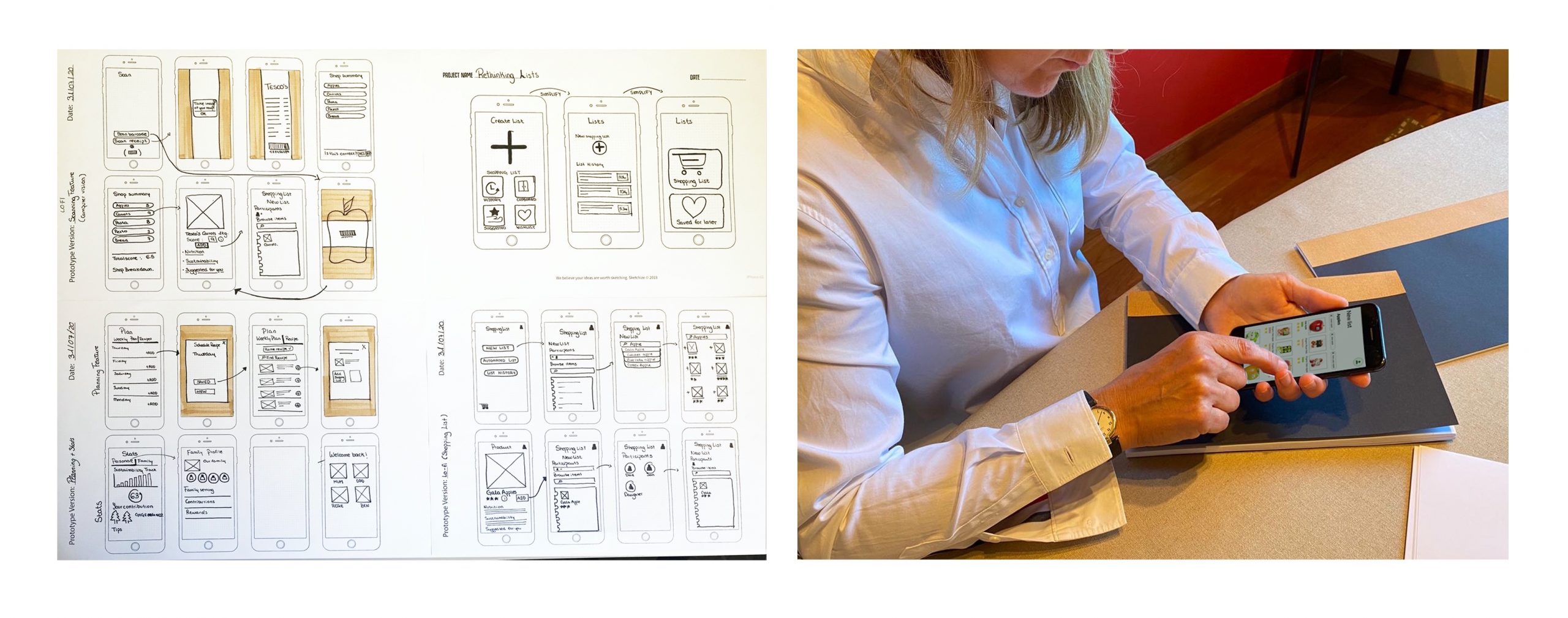
Prototyping and Design Iterations
To start translating the MindFood design concept into a tangible and testable artefact, a low-fidelity prototype was hand-drawn and later digitalised using Adobe XD. At this stage, a co-design session with users proved to be extremely useful to ensure the necessary focus was drawn to the main goal of the app: to improve users’ everyday food shop by helping them understand the impact of their current behaviour. Once there was a clear alignment between the users' needs and the designer’s intentions, further development of the app commenced. This constituted of 3 iterations that were individually tested by users and recorded in the form of usability performance and satisfaction assessments. Session feedback was thoughtfully considered for each iteration, to ensure a user-centred approach.

Final Concept - MindFood
MindFood is a digital assistant that supports users into making the most sustainable food choices that best fit their particular context. Through the use of computer vision and AI, users can scan their latest food shop receipt, get a digitalised summary of their shop and find out how sustainable the purchased products were. Users can learn the reasoning behind any products sustainability-related score and find alternatives that best match their environmental values.
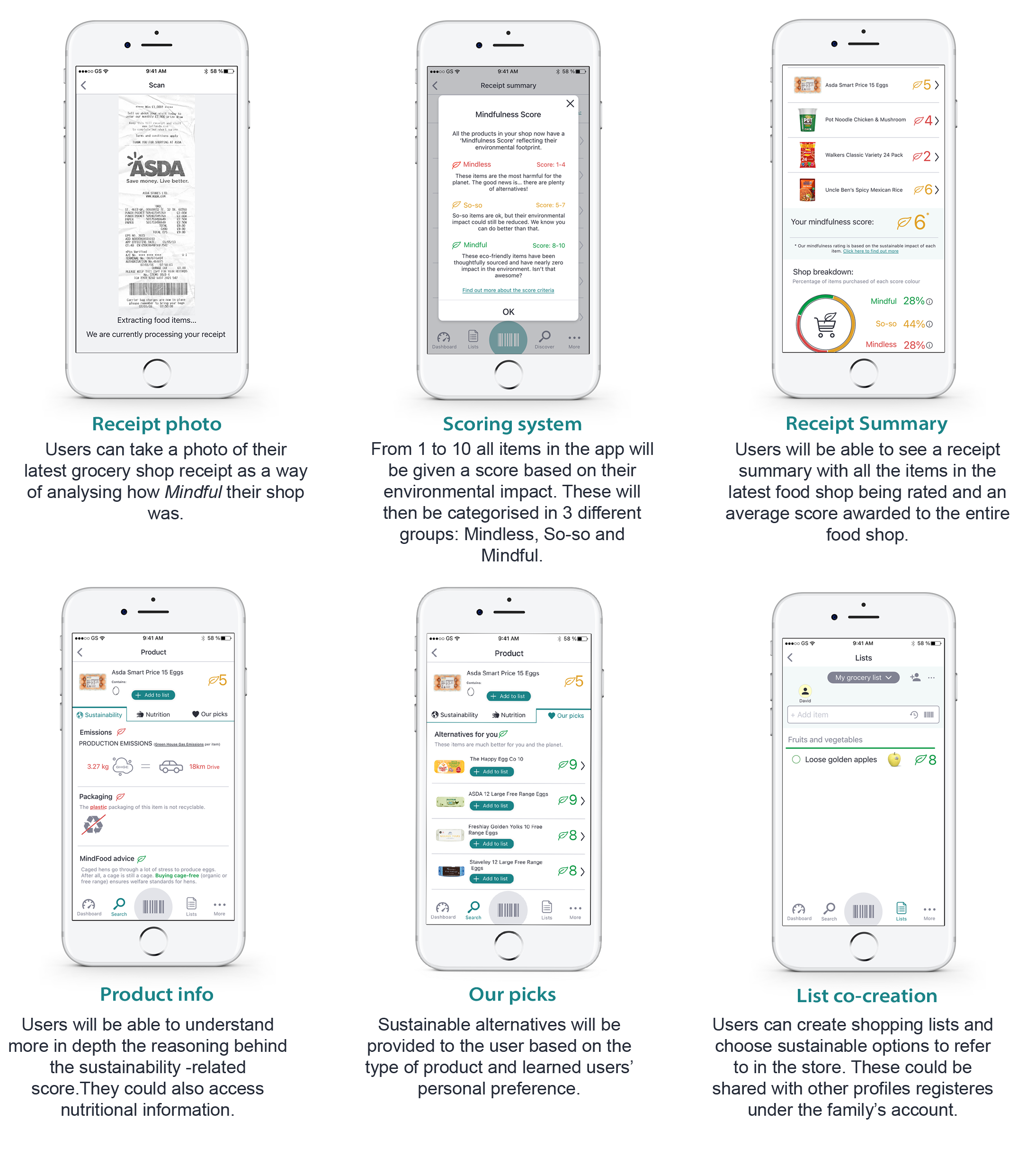
Key Features
The final interactive prototype can be found in the following link: https://xd.adobe.com/view/dadf4ef5-74f9-42e1-8fe1-1359a23434c1-8f8c/
Nerea Pascual Díaz
I am an enthusiastic and adaptive individual willing to use design to support a better future for people and the planet.
Originally from Spain, I studied BA Business Management at Exeter University, worked in a management position in Brussels and then decided to diversify my skills by learning how to code and work as a developer. These different disciplines have shaped me into a versatile and adaptive individual with a growing willingness to learn.
Coming from a business background and having working experience as a full-stack web developer, permitted me to see the potential of User Experience to provide meaningful solutions for all kinds of users and, at the same time, use this discipline to pursue a more sustainable world for everyone.
This Masters has not only allowed me to dive into the more technical aspects of being an UX designer ( i.e.: graphic design and prototyping tools, and UXD related techniques and methods) but it has also helped me shape my designers philosophy in a way that is coherent with my personality, values and personal standards. As a person with a high sustainability awareness, during the course of the UX Design Masters degree, I have drawn great focus to the field of sustainable design. I believe that design is one of the most powerful forces in our lives and as a designer, I have the responsibility to use it to improve lives, create opportunities, and bring people together.
Major Project
Supporting sustainable and healthy food choices for busy working parents
Awards
My team won the 1st Prize for Best Concept in the UXathon 19 that brings together Loughborough University and Hong Kong University students. For the competition, in a group of six UX students, we created a "User Experience (UX) agency" and virtually connected with our clients - MBA students from the Business Lab programme at HK University. After agreeing on a brief during the week, on Saturday we worked intensively on developing that brief and unpacking where digital design could enhance the user experience of an MBA start-up business concept. Our proposal was successfully awarded the 1st Prize for Best Concept.